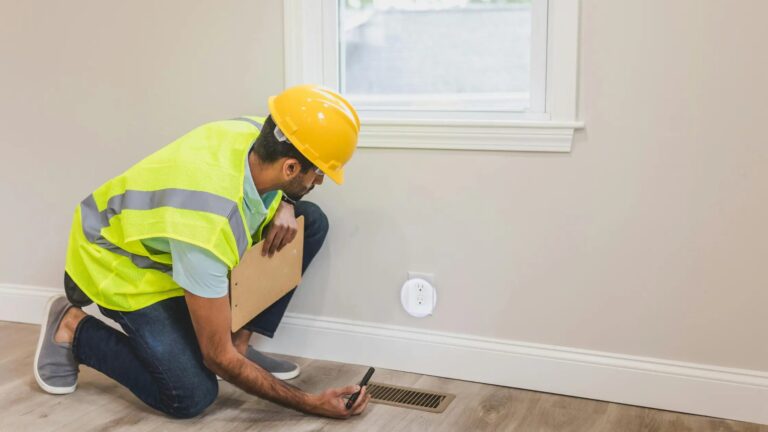This year is looking like another busy 12 months for landlords when it comes to new legislation.
Several key changes could come into force during 2022 and we’ve outlined everything you need to know about what’s coming in this guide…
1. The Renters Reform Bill
Having been delayed due to the pandemic, the Renters Reform Bill is now firmly back on the agenda in 2022.
Described biggest shake-up in the private rented sector since the 1990s, the Bill would introduce three major changes:
The end of section 21
Section 21 evictions would be abolished under the Renters Reform Bill, meaning you’d have to go through the section 8 court process to regain possession of your property – even at the end of a fixed term – giving your tenant not less than two months’ notice that you wish to regain possession of the property.
However, the Bill also proposes to improve the section 8 court process and widen landlord ground for possession.
The introduction of lifetime deposits
In a big move for tenants, the Bill plans to introduce lifetime deposits that follow renters from property to property.
Many tenants don’t receive their existing deposit back in time to use it as a deposit on a new property, meaning they have to effectively save two deposits.
The lifetime deposit rule would ease this, with more details expected on how the system would work for landlords.
Database of landlord
The Renters Reform Bill would see the government’s database of rogue landlords made available to tenants, agents, landlords and professional bodies.
Consideration is also being given for a landlord register or requirement for landlords to join a redress scheme.
2. Taxation and mortgage interest payments
April 2022 marks the first year of landlords being unable to claim any mortgage interest as a deduction from their tax bill.
Instead, you now claim a 20% tax credit for your mortgage interest expenses.
Tax returns for the 2020-21 year are due by January 31 and this return will be your first since the tax credit rule was introduced.
3. Interest rates in 2022
After almost two years at a historic low of 0.1%, the Bank of England chose to raise interest rates to 0.25% in December 2021.
Experts are predicting further rises in 2022, possibly to 0.75% by the summer, so if your buy-to-let mortgage is due for renewal this year, you should start looking for a new deal now.
4. More green mortgages
Green mortgages are becoming more and more common as the drive towards solving the climate change issue and greater sustainability continues.
Green mortgages are essentially incentives for landlords and homeowners whose properties are energy efficient.
If your rental property has an Energy Performance Certificate (EPC) rating of ‘C’ or above, you could qualify for a green mortgage and a more attractive interest rate.
Lenders such as NatWest and Nationwide are already offering these mortgages, and more are expected to do the same this year.
5. Minimum Energy Efficiency Standards (MEES)
Under current energy efficiency rules, no property with an Energy Performance Certificate (EPC) rating below ‘E’ can be legally rented out.
As energy efficiency and climate change continue to be a focal point of government, that minimum rating is due to rise to ‘C’ in 2025.
So, if your property is currently rented out with a ‘D’ or ‘E’ rating, you should start thinking now about how you can improve it ahead of those changes in three years’ time.
6. The Leasehold Reform Bill
Ground rents on leasehold properties can be a big problem for both landlords and homeowners – and the Leasehold Reform Bill is looking to address that.
For landlords, ground rent rises eat directly into their rental profits.
The Bill, however, is proposing to essentially ban ground rents for new leasehold properties – with only a rent of ‘one peppercorn’ permitted.
‘Peppercorn’ rates date from the 16th or 17th
century, with one peppercorn essentially worthless, making future ground rents effectively zero.
7. 2022 tax changes for landlords
The biggest taxation change you can expect in 2022 is the introduction of Making Tax Digital (MTD).
MTD is aiming to streamline the tax process and bring it more into the 21st century.
So, if you’re a landlord operating your rental business through a limited company, your turnover is greater than £85,000 and the company is VAT registered, you’ll need to switch to MTD after April 2022.
Under MTD, instead of filing an annual tax return, you’ll submit four quarterly returns digitally before signing off on your numbers once a year.
If you’re self-employed and earn more than £10,000 through rental income, you’ll need to switch to MTD in April 2024.
8. Tenants and pet requests
The government has already introduced minor changes aimed at making it easier for tenants with pets to rent a property.
And there could be more changes this year through the proposed Dogs and Domestic Animals Accommodation Protection Bill.
The main elements of the Bill are:
Responsible guardianship certificates
The Bill would introduce certificates of responsible guardianship for tenants.
Issued by qualified vets, the certificates would only be given to a tenant if:
- The pet is microchipped if a cat or a dog
- The pet has been de-wormed and deflead
- The pet has had all required vaccinations
- The pet can respond to commands from its owner
Details of all pets would also be held on a database.
Pet insurance
Although landlords and agents aren’t allowed to charge tenant fees under the Tenant Fees Act 2019, the Bill proposes to allow landlords the right to charge a pet insurance fee.
This would help to protect landlords from costs that arise should a tenant’s pet cause damage to their property.
No automatic right to keep a pet
Tenants would not have the automatic right to keep a pet should the Bill become law.
However, you would need to show that your tenant’s pet was a risk or nuisance to refuse their request if they have a certificate of responsible guardianship.
Landlord exemptions
Under the Bill, landlords would be able to apply for an exemption certificate if:
- They, or another tenant, has a religious reason for not encountering domestic animals
- They, or another tenant, has a medical reason for not encountering domestic animals
- Their property is deemed unsuitable for domestic animals
9. Rules on carbon monoxide alarms
Current rules on carbon monoxide safety state that you must fit a CO alarm in any rental property room that has a solid fuel burning appliance.
New plans, though, propose to extend those rules to include rooms with gas burning appliances like fires and boilers, but not ovens or hobs.
A reminder of changes from 2021
Several major changes to landlord legislation were introduced in 2021, including:
Foreign investor stamp duty
Landlords from overseas investing in UK buy-to-lets must now pay an additional 2% stamp duty surcharge.
Meanwhile, stamp duty rates are now back at their pre-pandemic levels, following the end of the Chancellor’s stamp duty holiday.
Electrical Installation Condition Reports (EICRs)
Electrical safety checks became mandatory for all tenancies in 2021 and you’re now required to provide an Electrical Installation Condition Report (EICR) every five years.







